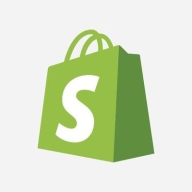

Shopify and Sana Commerce are competing products in the e-commerce market. Shopify appears to have the upper hand due to its competitive pricing and extensive support network, while Sana Commerce shines with its robust integration capabilities.
Features: Shopify offers a comprehensive range of themes, app integrations, and easy scalability. It provides an accessible platform for varied customer needs. Sana Commerce stands out for seamless ERP integration, real-time insights, and advanced customization features, catering to specific business environments.
Room for Improvement: Shopify could improve its ERP integration capabilities and offer more specialization for certain industries. Additionally, expanding customization options and reducing reliance on third-party apps might benefit users. Sana Commerce could enhance ease of use for non-technical users, provide more straightforward deployment, and offer a broader range of themes and app integrations.
Ease of Deployment and Customer Service: Shopify provides a straightforward deployment process with community forums and 24/7 assistance. It focuses on accessibility and broad support. Sana Commerce requires more intricate deployment due to complex ERP integrations but offers dedicated customer service for easing the process, focusing on companies needing deep integrations.
Pricing and ROI: Shopify offers a flexible pricing structure that enhances faster ROI with its straightforward monthly fees, suiting startups and SMEs. Sana Commerce presents higher initial costs due to customized integration but offers ROI advantages for businesses seeking strong integration with existing systems, aligning with larger enterprises looking for tailored solutions.
| Product | Market Share (%) |
|---|---|
| Shopify | 5.2% |
| Sana Commerce | 1.9% |
| Other | 92.9% |
| Company Size | Count |
|---|---|
| Small Business | 9 |
| Midsize Enterprise | 1 |
| Large Enterprise | 3 |
Sana Commerce is a SaaS-based B2B e-commerce solution that integrates seamlessly into your tech stack using agile cloud software to enable a stellar e-commerce web store with guaranteed uptime and minimal maintenance.
How? By making your SAP or Microsoft Dynamics ERP and e-commerce work as one. SCC harnesses the power of your ERP to create an e-commerce platform that automates tedious business processes and delights consumers with easy-to-use functionality. It eliminates the system silos, unnecessary complexities and compromises caused by mainstream e-commerce solutions. SCC drives growth and future proofs your business model by facilitating a smooth omnichannel order process without hurdles.
Sana Commerce is a certified SAP and Microsoft Gold partner, backed by a strong global partner network and recognized by leading industry experts.
Want to know if we can meet your B2B needs? Contact us for a personalized demo.
Shopify is an easy to use, fast, and secure eCommerce platform. Its CMS platform comes with several dynamic and useful features to help users create and manage their websites. The solution’s high-end security features, insightful analytics, user-friendly interface, and vast range of third-party integrations makes it one of the top platforms in the market.
Shopify Features
Shopify has many valuable key features. Some of the most useful ones include:
Shopify Benefits
There are several benefits to implementing Shopify. Some of the biggest advantages the solution offers include:
Reviews from Real Users
Below are some reviews and helpful feedback written by PeerSpot users currently using the Shopify solution.
Badrilal P., Shopify Developer at Freelance, says, “Shopify can be used without any coding knowledge; just drag and drop and configuring, those are the basics. It's a great solution for people who are in the initial phase of their business. They can use it to easily set up a store that includes product info, product pricing, add to cart, payment methods, gateway integration, menus, contact us forms, and inquiry forms. Anyone can set those features up in one day using Shopify. That's a huge benefit for our customers.”
PeerSpot user Tushar K., Co-founder at Dotmagic Infotech/Shopify Expert at Dotmagic Infotech, mentions, “The most valuable features are the core structure and backend structure. Our clients are easily able to manage their sites at the backend. Shopify provides an easy to use service at the backend that includes product upload, customer service, team settings, and team customization. It is all very easy to handle.”
We monitor all eCommerce Platforms reviews to prevent fraudulent reviews and keep review quality high. We do not post reviews by company employees or direct competitors. We validate each review for authenticity via cross-reference with LinkedIn, and personal follow-up with the reviewer when necessary.